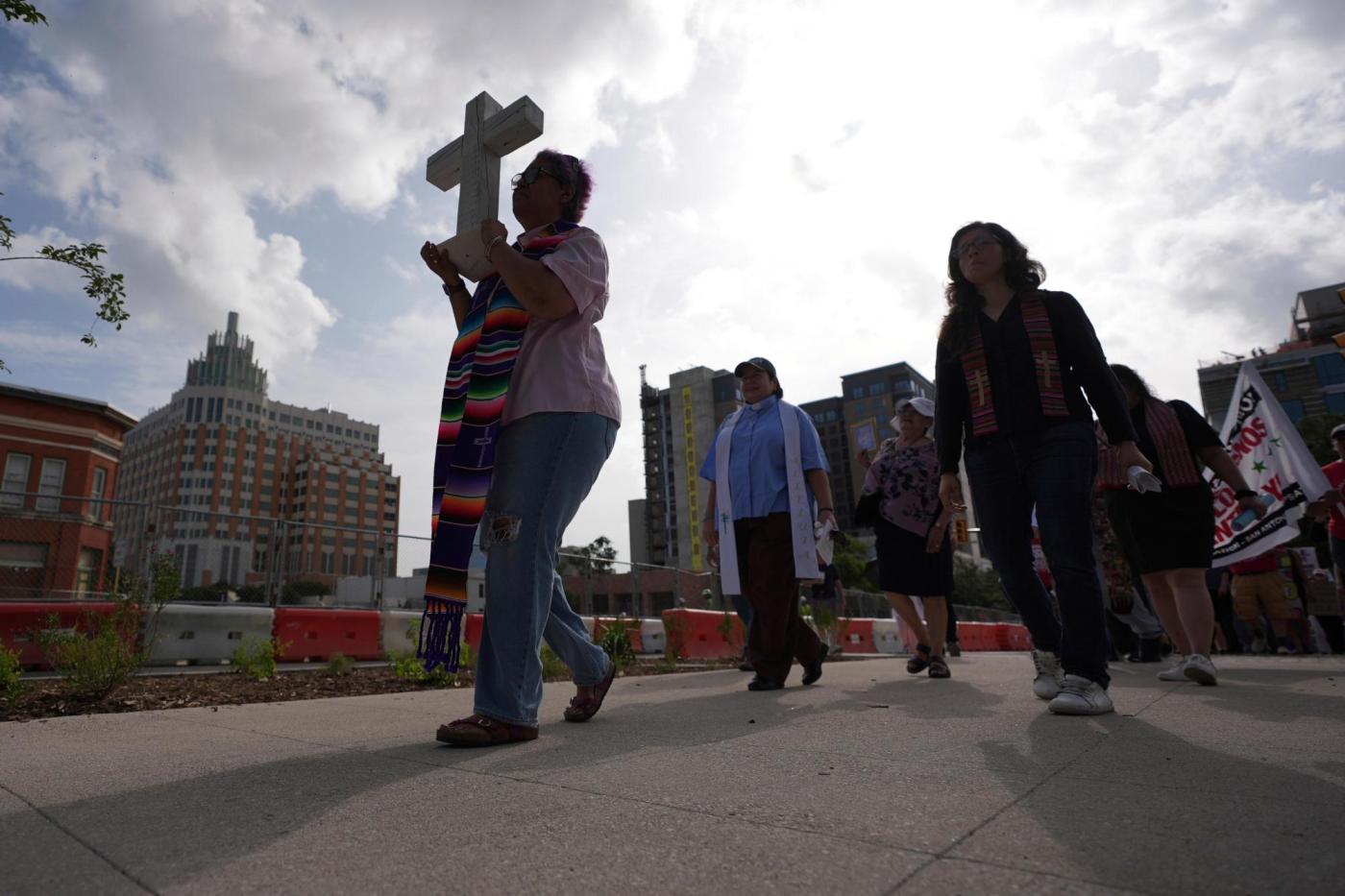In a significant development for immigrant rights, a Honduran mother and her two young children have been released from detention after filing what is believed to be the first lawsuit involving children against the Trump administration’s policy on immigrant arrests at courthouses. The family, identified in court documents as “Ms. Z” and her children, were detained following an immigration court hearing in Los Angeles and held for weeks at the Dilley Immigration Processing Center in Texas.
The family’s attorneys, including Columbia Law School professor Elora Mukherjee, announced their release late Wednesday. The family plans to return to their lives in the Los Angeles area, where they will continue to pursue their asylum case. Mukherjee emphasized the importance of their release, stating,
“They never should have been arrested and detained in the first place. We are grateful they have been released.”
Legal and Human Rights Implications
The lawsuit filed on behalf of Ms. Z and her children claims that their arrest violated the Fourth Amendment right to be free from unreasonable searches and seizures and the Fifth Amendment right to due process. The family had entered the U.S. legally using a Biden-era appointment app, making their detention particularly controversial.
According to the family’s lawyers, the young boy, who recently underwent chemotherapy for leukemia, experienced a decline in health while detained. The Department of Homeland Security has not commented on the case, though they previously stated that the boy received regular medical attention at the facility.
ICE Courthouse Arrests Under Scrutiny
The case of the Z family is part of a broader pattern of courthouse arrests that have drawn criticism from civil rights groups and legal experts. Starting in May, the U.S. has seen large-scale arrests of asylum-seekers appearing at routine hearings, a tactic used as part of the White House’s mass deportation efforts. Often, these arrests occur after judges grant government requests to dismiss deportation proceedings, leading to expedited removals.
Kate Gibson Kumar, a staff attorney for the Beyond Borders Program of the Texas Civil Rights Project, highlighted the case’s significance, stating,
“The Z family’s release demonstrates the power we have when we fight back against harmful, un-American policies.”
Historical Context and Legal Precedents
The lawsuit filed by the Z family is the first known case involving children challenging ICE’s courthouse arrest policy. However, it follows other legal challenges, such as a recent ruling in New York where a federal judge prohibited civil arrests by federal immigration authorities at state courthouses.
Historically, courthouse arrests have been a contentious issue, with critics arguing that they undermine the judicial process and deter immigrants from attending court proceedings. In response, some states have enacted laws to limit or prohibit such arrests, though federal policies often override these measures.
Broader Implications and Future Outlook
The release of the Z family could signal a shift in how similar cases are handled in the future. Legal experts suggest that the case may set a precedent for challenging ICE’s courthouse arrest practices, particularly when it involves vulnerable populations such as children.
As the family resumes their lives in Los Angeles, they face the ongoing challenge of securing asylum while managing the young boy’s health needs. The case underscores the complexities and human impact of immigration policies and the legal battles that often ensue.
Moving forward, advocates and legal experts will likely continue to monitor and challenge policies perceived as unjust or inhumane, aiming to protect the rights of immigrants and ensure fair treatment under the law.























